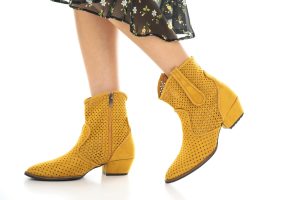Circular Fashion: How Brands Are Closing the Loop in 2025
Circular fashion has been gaining traction in recent years as brands strive to become more sustainable and environmentally-friendly. This trend is expected to continue as we approach 2025, with more and more brands adopting circular fashion practices. But what exactly is circular fashion and how are brands closing the loop in 2025? In this article, we will explore the concept of circular fashion, its benefits, and how brands are embracing it to create a more sustainable fashion industry.
What is Circular Fashion?
Circular fashion is a growing movement in the fashion industry that aims to reduce waste and minimize the negative impact that the industry has on the environment. It focuses on creating a closed-loop system where resources are kept in use for as long as possible through recycling, reusing, and repurposing materials.
Traditionally, fashion follows a linear model known as “take, make, dispose”, where resources are extracted, used to create garments, and then discarded after use. This model is not sustainable and has resulted in significant environmental damage, such as greenhouse gas emissions, water pollution, and textile waste. Circular fashion, on the other hand, aims to break this cycle and create a more sustainable and responsible fashion industry.
The Benefits of Circular Fashion
Adopting circular fashion practices has numerous benefits for both the environment and the fashion industry. Below are some of the key advantages of this sustainable approach:
Reduce Waste
Circular fashion aims to minimize waste by repurposing materials and keeping them in use for as long as possible. This reduces the amount of textile waste that ends up in landfills and contributes to overproduction.
Lower Carbon Footprint
By recycling and reusing materials, circular fashion reduces the need for new resources, which, in turn, lowers carbon emissions. This is crucial in combating climate change and reducing the fashion industry’s negative impact on the environment.
Promote Sustainable Practices
Circular fashion practices encourage sustainable practices throughout the supply chain, promoting fair labor practices and using eco-friendly materials. This leads to a more responsible and socially-conscious fashion industry.
How Brands are Closing the Loop in 2025
Many brands have started to adopt circular fashion practices, and this trend is expected to continue into 2025. Here are some ways that brands are embracing circular fashion in their operations:
Recycling and Repurposing Materials
One of the most common ways that brands are embracing circular fashion is by recycling and repurposing materials. This includes using recycled or upcycled fabrics to create new garments, as well as incorporating technology to recycle existing clothing into new pieces.
Rental and Resale Services
Some brands are also offering rental and resale services, allowing customers to rent or purchase second-hand clothing instead of buying new. This reduces the demand for new resources and extends the lifecycle of existing garments.
Collaborating with Sustainable Partners
Brands are also collaborating with sustainable partners, such as suppliers and manufacturers, to source eco-friendly fabrics and implement sustainable practices throughout the supply chain.
Implementing Sustainable Packaging
Circular fashion also extends to packaging, with brands using biodegradable and reusable packaging to reduce waste and environmental impact.
In Conclusion
Circular fashion is an essential step towards creating a more sustainable and responsible fashion industry. As we approach 2025, more and more brands are expected to adopt circular fashion practices and work towards closing the loop and creating a more sustainable future for fashion. By reducing waste, lowering carbon footprint, and promoting sustainable practices, we can create a fashion industry that is not only stylish but also eco-friendly and socially-conscious.










